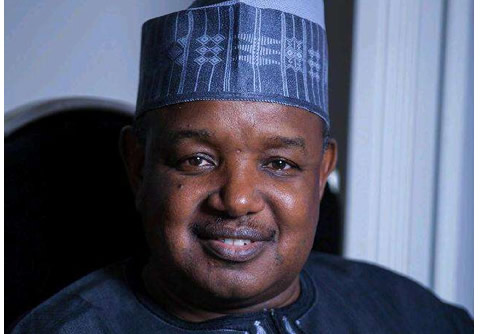Paragraph 1: Fiscal Transformation in Northern Nigeria Under the Tinubu Administration
The economic landscape of Northern Nigeria has undergone a significant transformation under President Bola Tinubu’s administration, marked by a substantial improvement in the fiscal position of the region’s states. This positive shift is primarily attributed to sweeping economic reforms, most notably the removal of the fuel subsidy, which has unlocked significant financial resources previously absorbed by this costly policy. This has resulted in a surge in federally allocated revenue to states and a corresponding decline in their debt burden, offering a much-needed fiscal breather for the Northern states grappling with economic challenges. This improvement is a key element of President Tinubu’s “Renewed Hope Agenda,” aimed at fostering inclusive growth and national unity.
Paragraph 2: Quantifying the Debt Reduction and Revenue Surge
The impact of the reforms is demonstrably evident in the substantial reduction of domestic debt across the 36 states and the Federal Capital Territory (FCT). Overall, domestic debt has plummeted by 33.4%, shrinking from N5.8 trillion to N3.8 trillion. The 19 Northern states have experienced an even more dramatic reduction, with their collective debt falling by a remarkable 42.06%, from N1.98 trillion to N1.14 trillion. Simultaneously, federally allocated revenue to states and local governments has more than doubled between May 2023 and June 2025, soaring from N458.81 billion to N991.81 billion – a staggering 116.17% increase. This excludes additional revenue streams like foreign exchange gains, EMT levies, and other augmentation payments, further highlighting the significant fiscal injection. The liberation of trillions of naira previously tied to fuel subsidy payments has been instrumental in this revenue surge, providing a substantial boost to the Federation Account.
Paragraph 3: Regional Breakdown and Impact of Revenue Growth
The positive fiscal impact has been felt across all states, with the Northern region witnessing particularly substantial gains. Gombe State, for instance, saw its allocation jump by an impressive 272.35%, from N6.69 billion in May 2023 to N24.91 billion in 2025. Kaduna State experienced a similar surge, with an increase of 251.84%, from N11.94 billion to N42.01 billion. Regionally, the North Central recorded a 145% increase in allocations, the North East a 149% increase, and the North West a 143% increase. These substantial increases in federal allocations have provided state governments with the much-needed fiscal space to invest in critical infrastructure projects and social development programs, reducing their reliance on unsustainable borrowing.
Paragraph 4: Infrastructure Development and Healthcare Improvements
Beyond the fiscal benefits, the Tinubu administration’s “Renewed Hope Agenda” is also translating into tangible improvements in infrastructure and healthcare across Northern Nigeria. Major infrastructure projects are underway, including the Sokoto-Badagry Superhighway, the dualisation of the Kano-Maiduguri Road, the Sokoto-Gusau-Funtua-Zaria Highway, upgrades to various other key roadways, and the AKK Gas Pipeline. Railway projects such as the Kaduna-Kano Railway and light rail projects in Kaduna, Kano, and the FCT are also progressing. In the healthcare sector, over 1,003 primary healthcare centres have been revitalized nationwide, with 10 upgraded national medical warehouses strategically located in the North. Federal teaching hospitals and medical centres in various Northern states are also undergoing significant improvements.
Paragraph 5: Healthcare Initiatives and Social Development Focus
The administration’s commitment to health justice is further demonstrated through the MAMII program, which has facilitated significant advancements in maternal and child health in the North. The program has recorded over 13.1 million antenatal visits, facilitated 4.2 million safe deliveries, provided 4,000 free Caesarean sections, and supported over six million women with nutritional assistance. These initiatives underscore the administration’s focus on delivering essential healthcare services and improving the overall well-being of the population, particularly vulnerable groups. This holistic approach to development encompasses not just economic growth but also crucial social development aspects, contributing to a more equitable and prosperous society.
Paragraph 6: Addressing Regional Concerns and Promoting National Unity
While some Northern leaders have expressed concerns about regional balance in the distribution of federal resources and projects, the Tinubu administration maintains that its development approach is both deliberate and inclusive, ensuring equitable distribution across all regions of the country. The administration points to the significant fiscal gains, infrastructure projects, and healthcare improvements in the North as evidence of its commitment to the region’s development. The ongoing economic, social, and governance reforms are strategically designed to promote inclusive growth, reduce regional disparities, and foster national cohesion, ultimately fulfilling the promise of the “Renewed Hope Agenda.” The administration’s commitment to fiscal transparency and continued collaboration with state and local governments further strengthens its efforts to build a more united and prosperous Nigeria.














